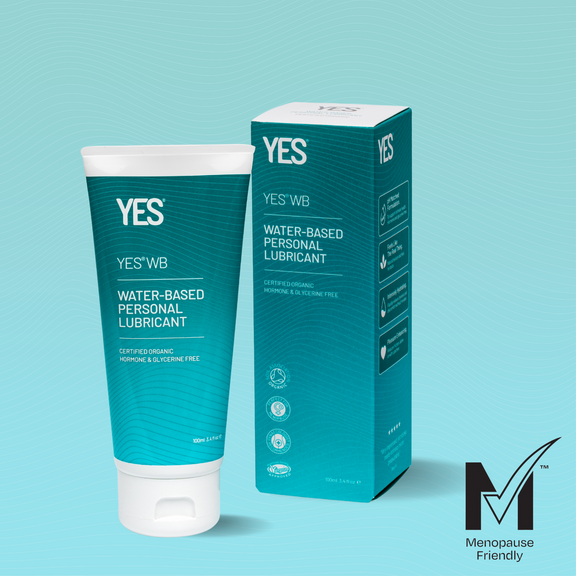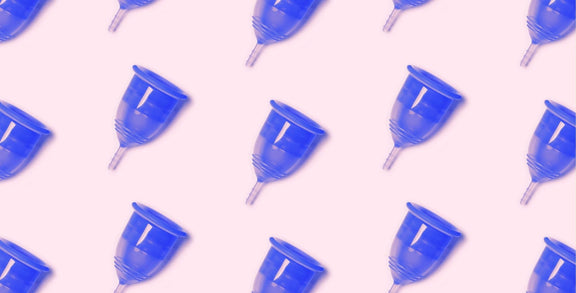Eco-Friendly Alternatives for a Greener Sex Life
Most of us are beginning to find ways to cut our carbon footprint, whether that’s through recycling, make dietary concessions or buying secondhand. But how many of us have considered how the choices we make in the bedroom can impact on the planet too? According to a recent article in Glamour Magazine, condoms, lube, toys, the pill all contribute to 222.9 million tonnes of waste in the UK (1). The good news is that you can make love and save the planet at the same time! Brands are responding to the demand for sustainable living, so it’s easier than ever to ‘go green’ in the bedroom, if you know where to look. Considering making a change? From recyclable vibrators to ethical lingerie, we’ve put together our top eco-friendly alternatives for achieving a greener sex life.

Set the mood sustainably
According to a recent poll, 60 percent of people enjoy lights-on sex, while 40 percent like getting it on with the lights off (2). If you’re one of the 60 percent, why not consider mixing it up a little and experiment with the lights off. Not only will you be saving energy, when you’re in the dark, you cut off one sense and this enhances the others, which can make sex more stimulating! Alternatively, if you need a little compromise, low light from candles are a great way to set the mood. Opt for natural wax candles that use soy instead of paraffin. Soy wax candles are a great alternative as they don’t contain toxic pollutants and produce significantly less soot than paraffin (3). We recommend London Refinery’s collection made with 100% pure essential oils and slow burning eco-soy wax.
Swap to eco-friendly sex toys
When shopping for a sex toy it’s important to consider what it’s made from. Most toys are made from silicone or plastic, so you might want to consider switching to more sustainable materials such as glass, ceramic, stainless steel or wood. They won’t go through the same wear and tear as silicone and if cared for correctly should last you a lifetime! Check out Jo Divine’s collection of luxury sex toys made from medical-grade borosilicate glass - these can be warmed or cooled to offer different sensations. If glass isn’t for you, there’s always Gaia, ‘the world’s first biodegradable and recyclable’ vibrator made from plant-based bioplastic. When it’s time to dispose of the toy, you simply recycle it in the same way as compost. Interested in making the swap, but need to get rid of your old toys first? Some sex stores actually offer to recycle customer’s old vibrators. Bonus points to Lovehoney as once recycled your toys, they also make a donation to the World Land Trust on your behalf.
Ethical lingerie
One of the biggest environmental concerns highlighted in the media this year was fast fashion. Fast fashion ‘focuses on speed and low costs in order to deliver frequent new collections inspired by catwalk looks or celebrity styles’. Unfortunately, it’s also incredibly bad for the environment, from the impact on water pollution to the use of toxic chemicals and increasing levels of ‘textile waste’ (4). In response, ‘ethical fashion’ has emerged as a way for consumers to reduce the environmental cost of mass-produced clothing. This covers everything from upcycled pieces to clothing made from recycled materials. Looking for a sexy something to slip into? Consider ethical lingerie brands such as Luva Huva. All of their lingerie and loungewear is made from scratch from natural fabrics such as bamboo, hemp, organic cotton, soy and tencel. They also use remnants, vintage and end of line fabrics and trims.
Use a natural, certified organic lube
Not only do adult products contribute to the depth of our footprint on the planet they also contain chemicals that are potentially harmful to it and us. For example; a huge percentage of the lubes on the market are full of concerning ingredients such as parabens, carbomers and other synthetics which can make their way into sewage systems and disrupt wildlife (5). These chemically-derived ingredients can be harmful to the planet, but they are also a concern for the human body, and can smother skin, cause irritation and even tissue damage. Instead, choose a clean alternative like YES. All of the products are plant-based, Soil Association certified organic and made without parabens, skin irritants, hormones or other concerning chemicals. Plus, the tubes, applicators and cardboard packaging (FSC) are all recyclable.
Shop responsibly for condoms
Just as many conventional lubricants can contain potentially concerning chemicals, the same applies to condoms. Nitrosamine, glycerine and spermicides are all ingredients to avoid (6). Many manufacturers also add a milk protein (casein) to their latex condoms to make them smoother, so if you’re trying to live a cruelty-free lifestyle, they aren’t suitable (7). Luckily, there are alternatives out there! Einhorn have created a range of vegan condoms with an emphasis on sustainable, ethically sourced rubber which derives from milky sap extracted from rubber trees. Instead of casein, they use a natural plant-based lubricant to keep their condoms silky smooth. What about afterwards? When you’re finished with a condom, don’t flush it down the toilet, as this can be damaging to sewage systems and marine life. Instead, find a film-plastic recycling programme, such as TerraCycle. Helping to protect the planet by making responsible choices about your purchases doesn’t mean that you have to give up on everything, but rather, more consciously align your values with the choices you make (8). If the amount of brands to choose from seems overwhelming, you can utilise ethical comparison websites such as The Good Shopping Guide, or if you’re looking for certified organic products, keep an eye out for The Soil Association logo. They’ve done the hard work analysing the brands, so you don’t have to.
(2) https://www.glamour.com/story/lets-have-a-sex-smackdown-ligh (3) https://www.independent.co.uk/life-style/scented-candles-health-danger-environment-air-pollution-chemicals-a8732436.html (4) https://www.independent.co.uk/life-style/fashion/environment-costs-fast-fashion-pollution-waste-sustainability-a8139386.html (5) https://www.acs.org/content/acs/en/pressroom/presspacs/2015/acs-presspac-october-14-2015/parabens-and-their-byproducts-found-in-dolphins-and-other-marine-mammals.html (6) https://www.verywellhealth.com/wondering-what-condoms-are-made-of-906749 (7) https://www.verywellhealth.com/wondering-what-condoms-are-made-of-906749 (8) https://www.theguardian.com/sustainable-business/choice-edit-consumer-behaviour




